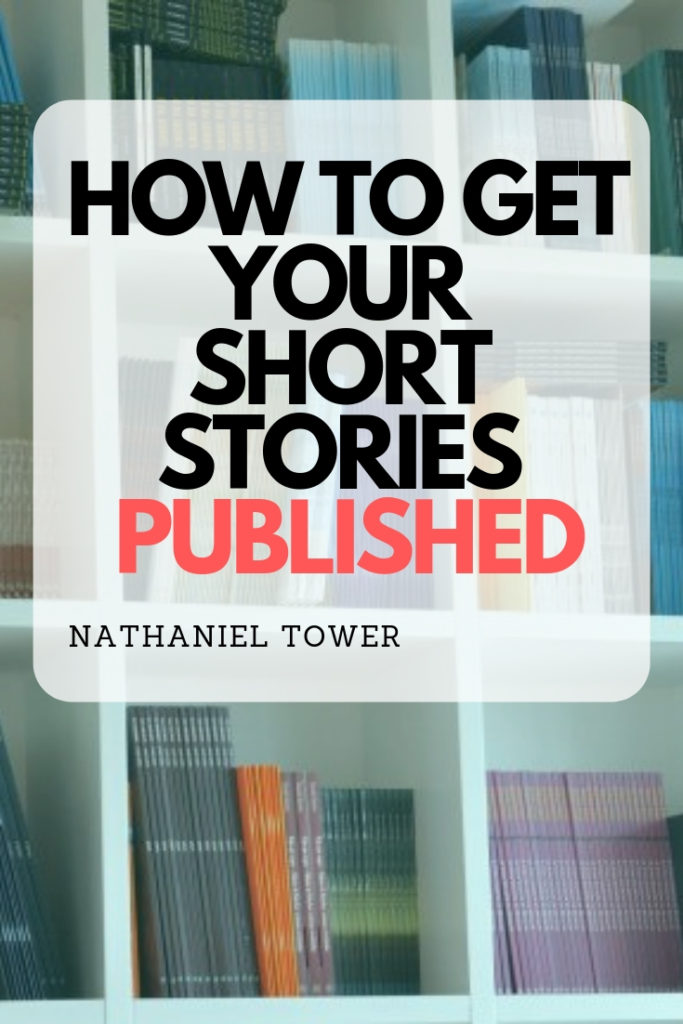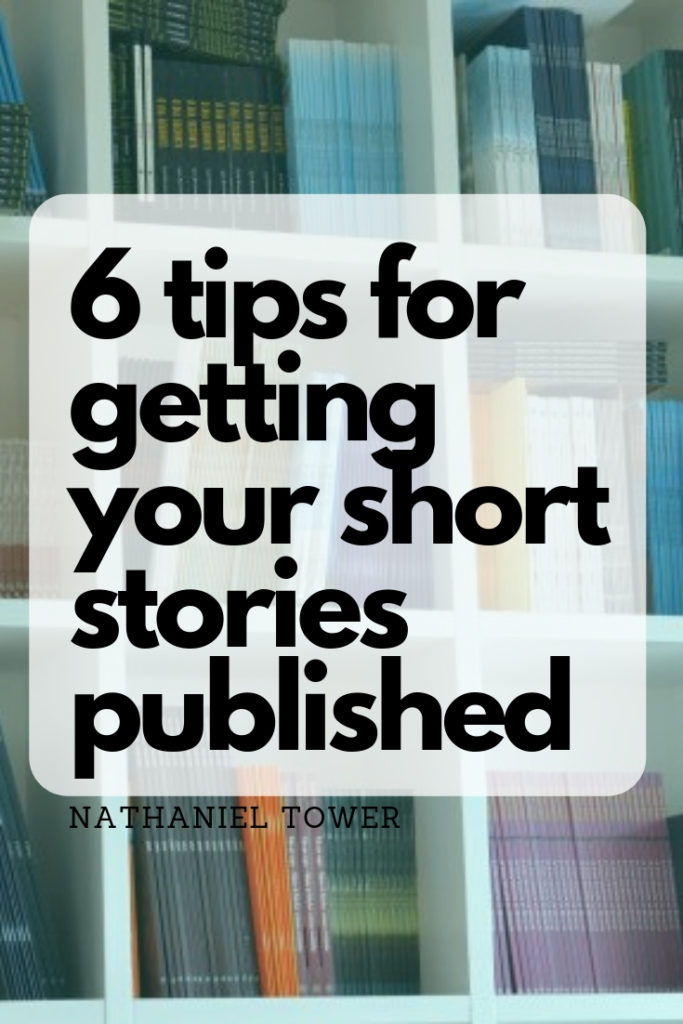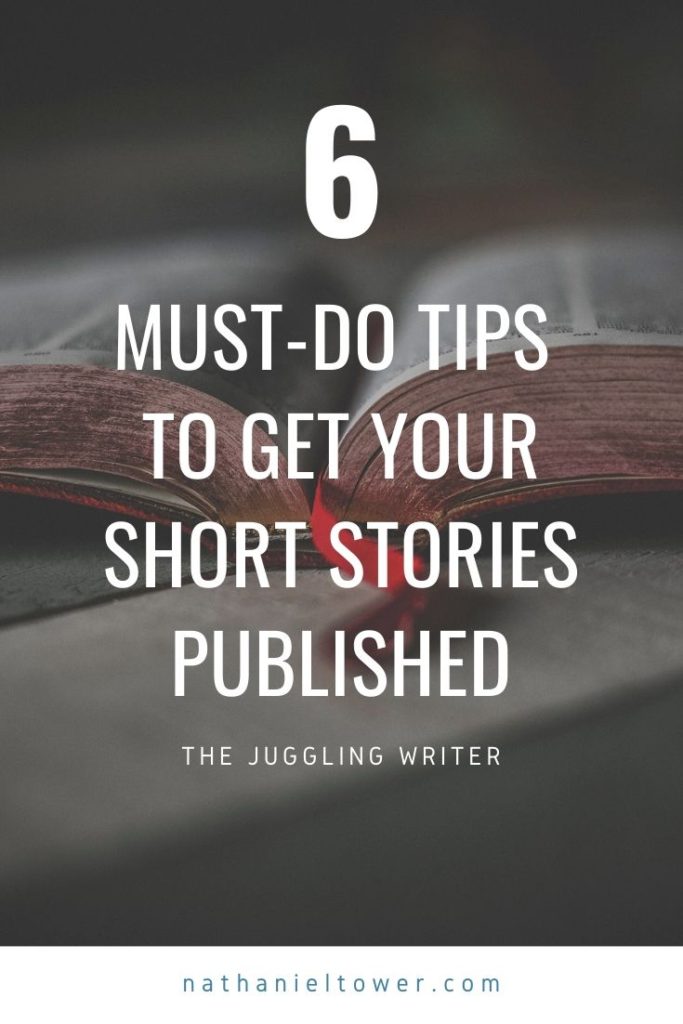Last Updated on July 7, 2024 by Nathaniel Tower
People often ask me how I’ve managed to get so many short stories published. Getting a short story published is surprisingly not that difficult—as long as you have a good story and put some effort into your submission process. Even mediocre stories have a decent chance of getting published with the right submission strategy. However, getting rich and famous off your short story is almost impossible.
6 things to do if you want your short story published
Before we worry about fame and fortune, let’s start by getting your story accepted. Whether you’re a brand new writer or an oft-published short story author, here’s how you can get your short story published.
1. Write the best short story you can
This should be obvious, but many people don’t follow this simple advice. Too many writers will pound out a quick story and then send it out to the most prestigious literary magazines in the world. Others will take their worst stories and send them to unknown venues just to get a publication credit. Great stories are obviously more publishable than bad stories. Not every story you write will be publishable. But every story you submit should be something you consider your best work.
Need an idea for a short story? Try this post containing dozens of great short story ideas!
2. Revise and edit your short story thoroughly – and then revise and edit it again
Revise, revise, revise. If you haven’t read over your story at least half a dozen times, then you haven’t even started the editing process. We’re not just talking about looking for grammatical issues here, although those are important. Revising a short story is about fine-tuning it to make it tight, engaging, and as perfect as possible. Try to pare it down as much as you can. The longer your story is, the harder it is to sell.
3. Format your short story correctly
Don’t get cute or fancy with your short story’s format. It’s always best to go with standard short story manuscript format. Publications will reject your work if the formatting doesn’t jive with their preferences. You can download a free short story manuscript template here to make the process easy.
4. Find the right venue for your short story
Don’t just send your work anywhere, and definitely don’t send it everywhere. Pick a publication that seems like a good fit. You’re going to have to do your homework here. You can find plenty of submission opportunities through the following sources:
- Social media groups like Calls for Submissions on Facebook – These are typically closed groups with lots of posts about places to submit your work. If you request to join, you’ll usually be accepted in a few hours.
- Submission Grinder – Free, searchable database and submission tracker with robust filtering options. Fiction and poetry markets only.
- Duotrope – The most robust and most frequently updated database of literary magazines. Includes tons of search options, detailed response statistics, lists, and a built-in submission tracker. Requires a monthly subscription. Free trial available.
- The Review Review – Searchable database of literary magazines plus reviews of various publications.
- Submishmash Weekly – Powered by Submittable, this is an ongoing and frequently updated list of opportunities to submit your work.
- Poets & Writers – Free searchable database of literary magazines, literary agents, contests, and more with some basic filtering options.
- Newpages – Free searchable database of literary magazines and calls for submission with some very basic filtering options.
With all of the above resources, there’s no excuse for saying that you don’t have any clue where to send your work. Don’t just blindly submit. Be sure to read the publication first to make sure your writing style matches their aesthetic. There are thousands of literary magazines out there. Choose the right ones.
5. Follow the guidelines to a T and submit your short story
Submission guidelines are sacred. Don’t waver at all. If their maximum word count is 2,000, don’t send a story that has 2,001 words. They will probably reject you for going over the limit. With as many submissions as literary magazines get, they are often looking for easy ways to reject a story.
6. Get your acceptance email and agree to their terms
Congratulations! This is the easiest step, once you get here. All you have to do is say, “Yes, I accept your acceptance!” Then the real the hard part begins: promoting your newly published story. But that’s a topic for another day.
By following these six simple steps, you can easily get your short stories published. Okay, it isn’t quite that easy, but simply getting a /short story published isn’t the impossible task that many make it out to be.
By getting your short story published, you will be that much closer to your dream of making money as a writer.
How to get your short stories published FAQs
Can short stories be published?
Absolutely. There are thousands of online and print publications that focus on publishing short stories. You can find publications that accept short story submissions by using a tool like Duotrope, Every Writers Resource, or The Submission Grinder.
How do I get my first short story published?
Getting your first short story published can be a challenge, but many publications are happy to publish first-time authors. The key is to find the right venue for your work and to submit high-quality writing. You don't need a long list of previous publications to get your short story published.
Can you sell short stories?
There are many publications that pay for short stories. If you are trying to sell a short story, you can expect to receive anything from a token $5 payment to a professional payment of 10 cents per word or more. Many publications will pay you in 'exposure,' which means they are getting you in front of an audience rather than paying you actual money.
How do you get a story published?
Once you've written, revised, and edited your story, find a publication that accepts stories within your genre and word count. Submit your story using a standard manuscript format. Be sure to follow the publication's submission guidelines. If they like the story, they will send you an acceptance letter. Your acceptance letter may or may not include a contract that outlines the conditions of the publication, including any payment.
What are your key steps for getting a short story published? Share your process in the comments. And don’t forget to share this post on all your favorite platforms.




One thought on “How to get a short story published”